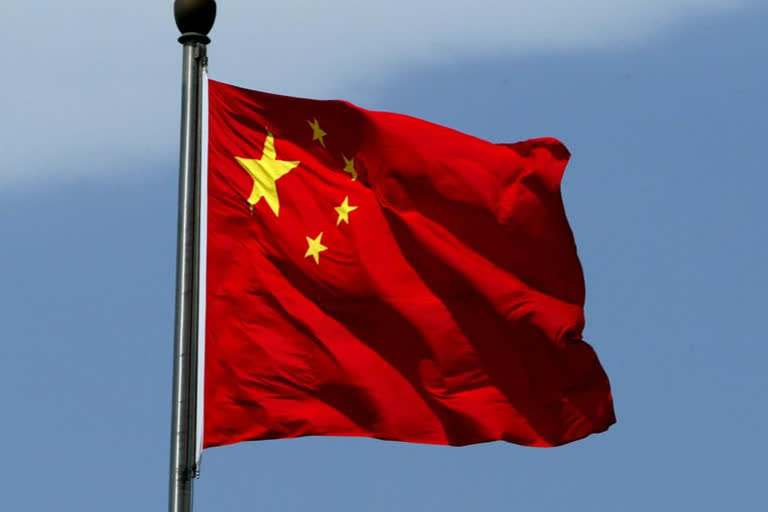Beijing: China on Thursday sharply reacted to German navy chief Vice Admiral Kay-Achim Schonbach's remarks that Beijing's naval power build-up is a cause of worry as it grew to the equivalent of the entire French navy every 4-years, saying such concerns are misplaced.
Schonbach said in Singapore on Wednesday that China's growing naval power is explosive and a cause for concern and urged Beijing to follow the international rules-based order. He said China is increasing the size of its navy by the equivalent of the entire French navy every four years. Schonbach made his comments as the German frigate Bayern is docked in Singapore as part of an effort to safeguard security and stability in the region.
A German warship last passed through the disputed South China Sea in 2002. China claims most of the South China Sea. The other claimants included Vietnam, the Philippines, Malaysia, Brunei and Taiwan. Asked for his reaction, Chinese Foreign Ministry spokesman Zhao Lijian told a media briefing here that I don't think there is any need for such concerns claiming that China is a builder of world peace.
"China is developing its military capability in order to safeguard its legitimate national security interests," he said. "It is just beyond reproach. Any country as long as they don't have any intention to threaten or harm China's sovereignty, security and territorial integrity, it will never be threatened by China's national defence forces, he said. "What I want to say is that these countries don't have to make an issue out of China if they want to expand their own military build-up, Zhao said.
Also Read: China orders lockdown of up to 13 million people in Xi'an
The Chinese navy is currently regarded as the world's fastest-growing navy with new vessels being added to the fleet on a monthly basis. While it has two aircraft carriers with the third one undergoing sea trials, China plans to acquire about five to six aircraft carriers in the coming years, according to reports in the official media.
As part of a new military doctrine advocated by President Xi Jinping, the Chinese military has expanded its navy and air force manifold to enhance its global influence. The Chinese navy for the first time in its history has logistic bases in Djibouti in the Indian Ocean and developing Pakistan's Gwadar port in the Arabian Sea. China also has acquired Sri Lanka's Hambantota port as a debt swap.
The German naval chief's remarks are a cause of concern for China as Germany, which shared close business and commercial ties with Beijing under the 16-year long reign of German Chancellor Angela Merkel, joined the US, UK, and Japanese navies in deploying their ships in the South China Sea challenging Beijing's claims over the area. In recent months Germany has joined the chorus of the US, the EU and other western nations criticism of Beijing's alleged human rights violations especially against Uygur Muslims in Xinjiang.
On Tuesday, Chinese President Xi sought to woo new German chancellor Olaf Scholz in their first phone call, saying China and Germany should continue to see each other as partners. Hailing China's relations with Germany as the bellwether in navigating China's overall cooperation with Europe, Xi also urged Berlin to play an active role in stabilising the relationship between China and the European Union, according to state news agency Xinhua.
"China and Europe are two independent and autonomous global powers with broad strategic consensus and common interests, Xi said in his first phone conversation with Scholz since the latter took over from Merkel two weeks ago. Germany's deployment of its warship comes after the country issued policy guidelines on the Indo-Pacific region last year, which noted that European and Indo-Pacific economies are closely connected through global supply chains, the CNBC reported.
"We're here for the first time after 19 years to check the battlefield, he said. "Last year, the government of Germany promulgated the guidelines for the Indo-Pacific. This is now the first step. The next step, probably, I hope that we can come on a regular basis two or three years, Schonbach said.
Also Read: China trying to increase foothold among Madhesis in Nepal
(PTI)



